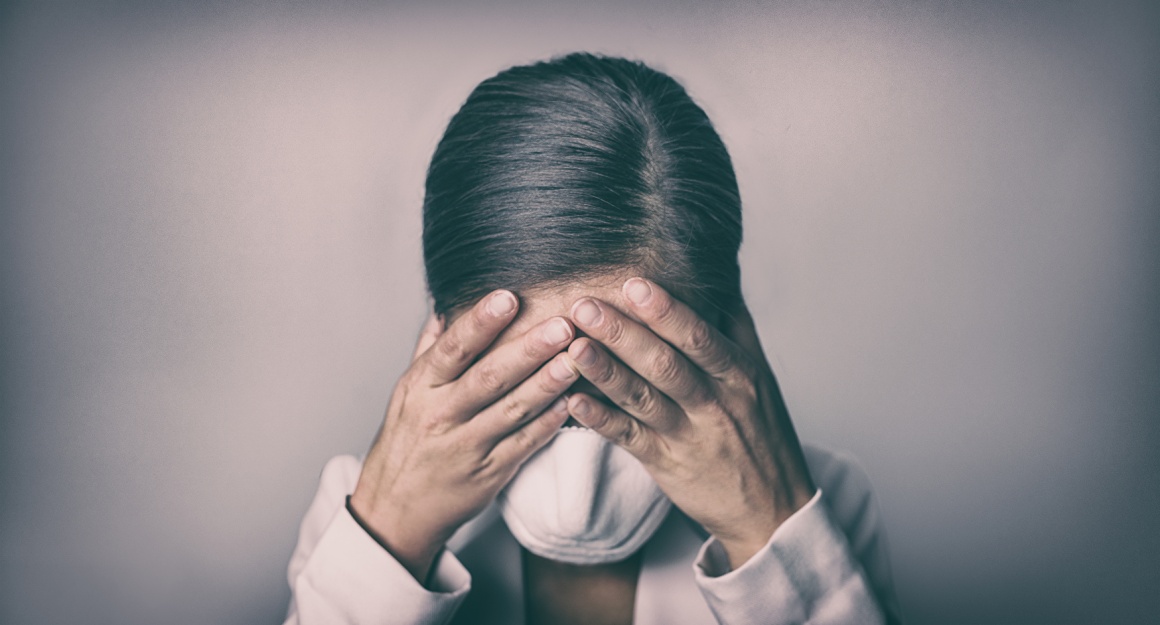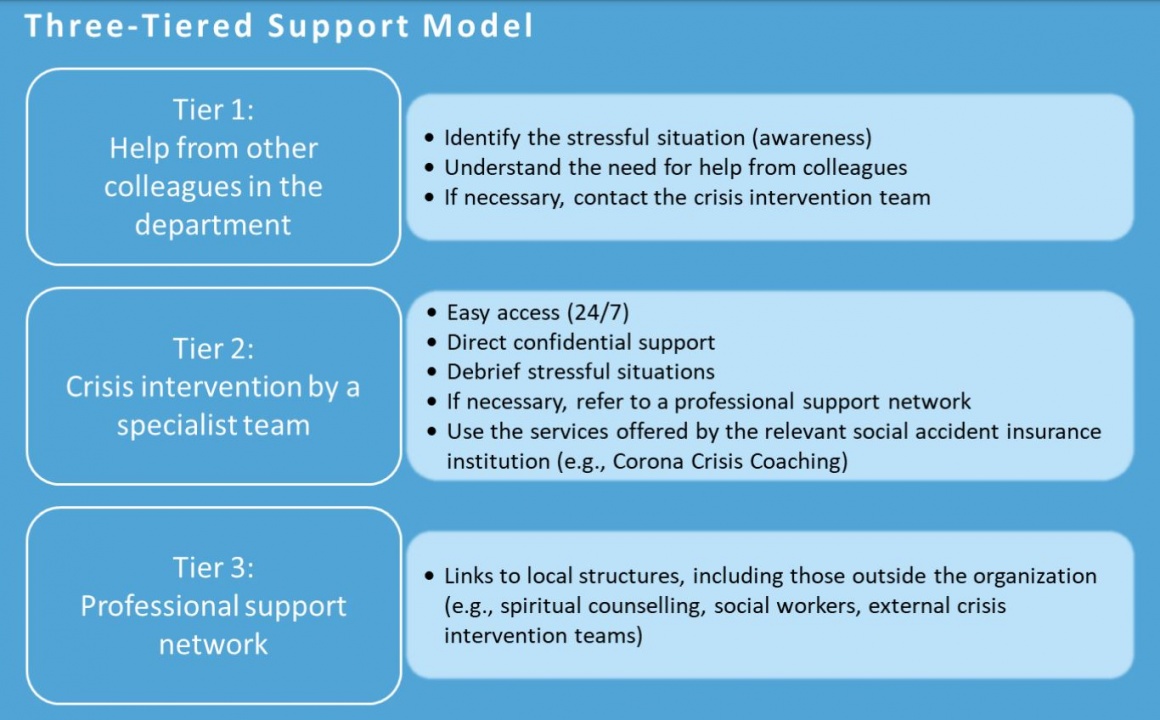The Department of Occupational Health (Fachbereich Gesundheit im Betrieb) of the German Social Accident Insurance (DGUV = Deutsche Gesetzliche Unfallversicherung) published a guide in PDF format in June 2020 that deals specifically with „Psychological Stress and Strain Experienced by Employees during the Corona Pandemic“.
The aim of this guide is to help employers and those responsible for occupational safety and health in companies to monitor mental stress and strain during all phases of the coronavirus pandemic.
The guide answers three questions:
- What psychological challenges are employees facing?
- How can work be designed in a way that the health of employees is not endangered?
- What do you need to consider concerning long-term negative effects on the health of employees?

What psychological challenges are employees facing?
It is a challenge to create a good, efficient and healthy working environment under the existing and constantly changing conditions and restrictions due to the pandemic. The design of working conditions has a considerable influence on how well employees can cope with these new challenges at work.
Some current psychological challenges for employees are:
- reorganization of work processes, times, communication and workplaces
- job insecurity
- fear of being infected or infecting others
Reactions to these stress factors can range from physical (physical complaints, exhaustion) to cognitive (performance anxiety, difficulty in concentration) to emotional (feeling under pressure or powerless).
How to best protect the physical and mental health of your employees during this crisis?
So how can work be designed in a way that the health of employees is not endangered? The guide of the DGUV contains a checklist of possible measures for ensuring that employees remain healthy during a crisis. For each stress factor and associated harazds there are possible activities listed.
(An editable PDF version of this checklist is available for businesses to download.)
Possible measures can be:
- Let employees make decisions independently and/or as a team
- Regularly change tasks or rotate tasks between different employees
- Continuously provide employees with targeted, transparent information about the current situation
- Have a pandemic plan or action plan ready in the event of suspected or confirmed COVID19 infections
- Train employees in the use of new communication tools and new forms of work (e.g., mobile work, virtual work)
- Provide employees with sample responses and rules in the event of hostility towards employees
- Provide the opportunity to give feedback on negative work experiences
- Give regular opportunities for peer-to-peer exchange
- Promote mutual support and encourage acceptance of emotions and fears

Consider long-term negative effects on the health of employees
The corona pandemic (and the associated constraints and lack of resources) can endanger the physical and mental health of employees due to a variety of personal and occupational challenges. It is important to keep in mind the long-term negative effects on mental health. The risk of developing mental disorders such as anxiety disorders, post-traumatic stress disorders, sleep disorders, depressive moods or other adjustment disorders increases the longer these exceptional circumstances last.
It can be worthwhile in the long term to build support processes and networks, both in-house and with external professional help. Employees as well as managers can benefit from such structures.




